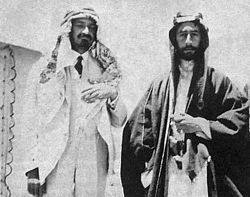It seems that that this week, the 4 week old Israeli attack on Hamas’ positions in Gaza is finally winding down and perhaps its time to start thinking practically about figuring out a solution to the problem of the approximately 1.8 million people living there.
Trapped by Geopolitics and the environment
Everyone following this story has been affected by the loss of innocent life and destruction of infrastructure and people’s homes in a poor, crowded province regardless of their political sympathies or understanding of the conflict. An important question moving forward, perhaps the important question, is what can be done in the aftermath to avoid having the cycle repeat itself.

As World War I ended, European Diplomats dreamed of building a new middle east in what had been Ottoman controlled territories and in 1919, brokered an agreement between jews and arabs which called for a peaceful coexistence in what was called Palestine at the time. On the arab side was Emir Faisal, son of Hussein bin Ali, the Sharif of Mecca who the Brittish had chosen to lead a large arab kingdom including what is now called Syria, Palestine, Israel, Jordan, Iraq and much of Saudi Arabia. Chaim Weizmann represented the young Zionist movement and would go on to become the first President of Israel in 1949.
Almost 100 years later the decedents of the arab people who had been living in Palestine at the time, who were not consulted about the agreement, are still suffering the consequences of a series of decisions and wars in a small, overpopulated enclave without sufficient energy, water and sanitation.
Rough Politics
In 2005, Israel’s controversial Prime Minister, Ariel Sharon, made a unilateral withdrawal from the Gaza Strip relocating the 7,000 israelis living there and essentially inviting its palestinian citizens to choose their own future while carefully controlling its borders and airspace to make sure that it would noir become a military base from which attacks could be launched at Israel.

In 2006, Hamas won a majority in the Palestinian parliament elections and then came to power in Gaza after violent fighting with political rival, Al Fatah which reportedly killed 600 people in 2006 and 2007.
Since then Hamas’ government has struggled against a controversial Israeli blockade initial imposed to keep weapons out of Gaza but, according to Aljazeera, used as a policy instrument to frustrate Hamas’ ability to govern.
Hamas, which is publicly committed to the destruction of the state of israeli and considers itself at war, rearmed in any case and in 2008 Israeli attacked its positions with similarly fatal results to the present campaign.
So what now?
The people of Gaza need reconstruction, development, jobs, passports and markets for their exports. There is an offshore gas field which could be developed. None of this will happen while the state of war continues.
The problem, is that Israel will not open its borders to Gaza, or even allow Gaza to open its own, as long as its government continues to use the little money it has to import missiles to launch into Israel.
Hamas itself does not seem ready to put the pragmatic interest of its people ahead of its ideological commitment to Israel’s destruction and has demonstrated its willingness to kill its political opposition.

Over the last few weeks Egyptian President, Abdul Fattah Al-Sisi, has proposed a cease fire and negotiated end to the current conflict which would bring the situation back to where it was before the attack but that may not change the underlying issues.
Al Sisi, orchestrated the ousting of Hamas ally, Muhammad Morsi in Egypt and has declared the Moslem Brotherhood illegal and is certainly not Hamas’ first choice as white knight in the situation. Nevertheless, perhaps the best thing for the people of Gaza would be to allow Egypt, rather than Israel, to patrol its borders and keep the peace.
Egyptian banks could finance the reconstruction of Gaza and Egyptian companies could develop its infrastructure and the gas fields. In 2005 the Palestinian Authority became responsible for Gaza after the Israeli withdrawal.
Maybe it’s time to let Egypt try?

